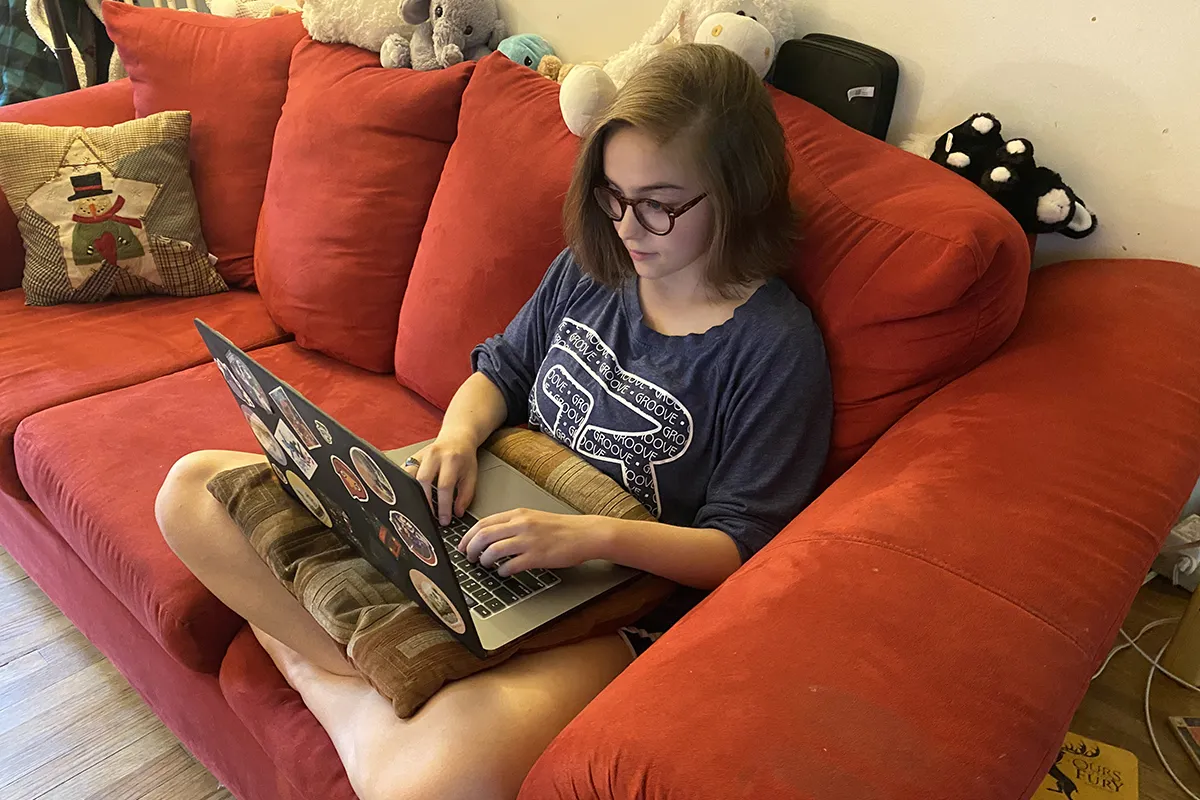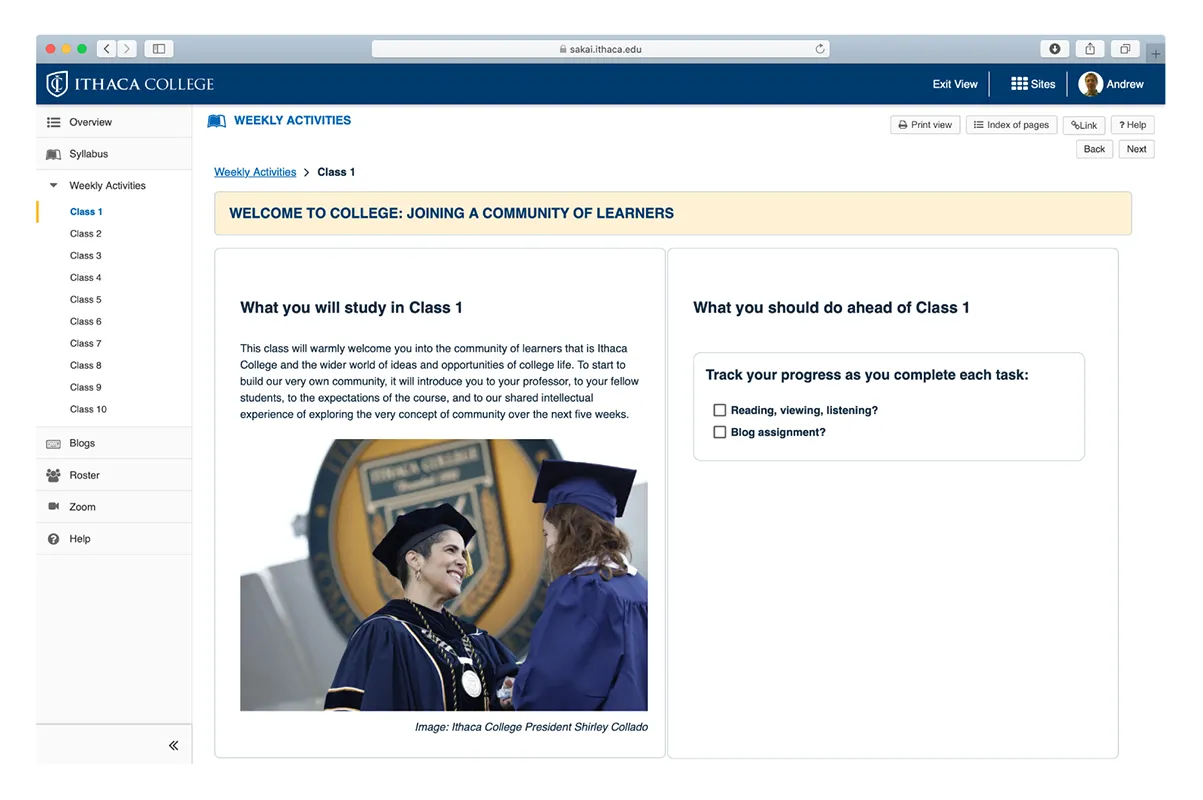Half of Ithaca College’s incoming class, about 600 first-year students, got a head start on their IC experience this summer.
An Office of Extended Studies pilot program offered incoming students the opportunity to earn up to three credits through online summer seminars. The first one-credit class was free, with each additional class just $150 — a substantial savings off the typical price of $1,088 per credit.
“On average, students opted to take two classes,” says Andrew Utterson, associate professor of screen studies and director of the Ithaca Seminar Program. “So it turned out to be an extremely popular program.”
The Ithaca Summer Seminars were the brainchild of Jennifer Wofford, director of extended studies, who came up with the idea to engage students prior to the start of the semester. This summer’s seminars served as an introduction to the technology IC uses for online classes, including its learning management system, Sakai. And the program got incoming students thinking about how to achieve the college experience they want despite the pandemic, says English professor Elizabeth Bleicher, who taught the other foundation seminar.
“Our goals were really to help students get excited about coming to college,” she says, “to start preparing them mentally and emotionally and intellectually for the transition.”


